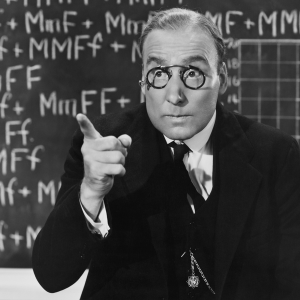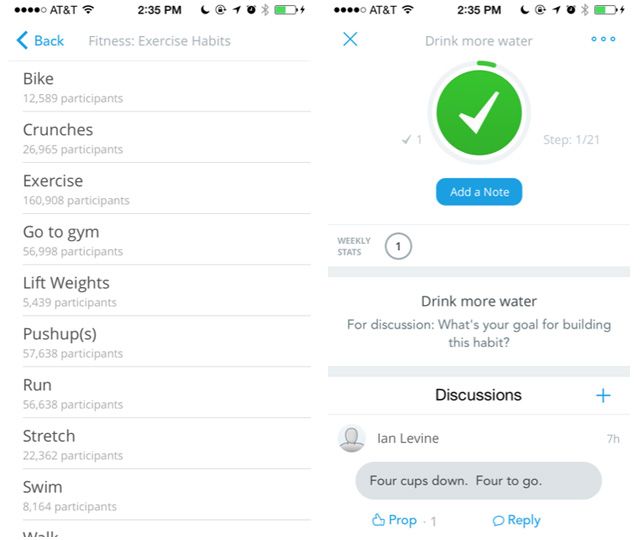It's all too easy to feel crestfallen when you're arduously trying to improve a certain skill (say, learning a new programming language), yet seem to be fighting (and losing) an uphill battle. In cases like these, it may be high time to try your hand at some deliberate practice to get you over that infuriating plateau.
Trying to improve at anything is tough. Especially if you're trying to become "world class", or at least better than average at it. Sometimes you'll hear people talking about practicing something for 10,000 hours (The 10,000 Hour Rule?), and thereby becoming a "master" at that specific skill. In truth, the idea of dedicating 10,000 hours to anything sounds so daunting that the simple idea itself is scary. Alas.
But hold on...there is another way! All it takes is one hour of deliberate practice each day. Allow me to explain.
There's Nothing Inherently Special About 'Experts'.
K. Anders Ericsson, a psychologist and scientific researcher from Florida State University clarifies in his paper; 'The Role of Deliberate Practice in the Acquisition of Expert Performance' that...
“...People believe that because expert performance is qualitatively different from normal performance the expert performer must be endowed with characteristics qualitatively different from those of normal adults. This view had discouraged scientists from systematically examining expert performers and accounting for their performance in terms of the laws and principles of general psychology.”
To paraphrase; the prevailing opinion was that people who had expert-level skills had to necessarily be endowed with some sort of innate, in-built natural talent which was responsible for their greatness. These talents couldn't simply be picked up by the lay-people who weren't gifted with those natural abilities. Therefore, scientists have largely (and mistakenly) avoided directly studying these expert-level performers.
From here, Ericcson and his team took control, and began studying in earnest how, exactly, experts and masters developed these expert, masterful skills. They came to the insightful conclusion that how you practice matters far more than how much time you spend practicing.
What Is Deliberate Practice?
Around the same time as the above research was being conducted, John Hayes, a cognitive psychologist from Carnegie Mellon University, concluded (in short) that the best way to practice (i.e. how true experts were practicing), was to set about improving each skill by focusing largely on improving the sub-skills that the overall skill is composed of.
One sub-skill at a time. It's this method of practice that we label "deliberate practice".
A highly structured activity engaged with the specific goal of improving performance in a certain area.
It's important to note that this kind of deliberate practice differs largely from both play, and simple repetition of an activity (in the false hope that this will help you to become great at something). It requires sustained effort with no monetary reward, and often little enjoyment except for the knowledge that you're getting better at a very specific skill (or sub-skill).
Take for example becoming an expert programmer.
As a skill in itself, this is extremely broad, and is comprised of myriad sub-skills. By choosing a specific aim (i.e. becoming an expert WordPress programmer), you can clearly see the sub-skills that are important to master in order to help you achieve this aim -- PHP, CSS, etc. Each of these individual sub-skills, of course, can be broken down into further sub-sub-skills. By deliberately focusing on mastering each of these sub-sub-skills individually, you can become an expert WordPress programmer.
Why Is This So Important?
To speed up the learning curve.
By knowing how to practice effectively, it'll naturally take you much less time to reach your peak, where you can be considered an "expert" in whichever area you like. This is often less time consuming than that dastardly 10,000 hour rule mentioned above proposes (though not always).
Tim Ferriss in his book the 4 Hour Chef teaches readers (via many of the tenets of deliberate practice) how to become expert at pretty much any skill in a fraction of the time that it would usually take.
Harry Cloudfood, for instance, put this to the test by aiming to become a skilled rock climber in just a few short months, and explains the sub-skills that he chose to deliberately and exclusively focus on his blog.
But remember: This isn't all about shaving hours off your practice time.
Kobe Bryant would spend hours upon hours deliberately practicing 800 jump shots (rather than practicing the 'whole game') before most of us would even get up in the morning. He recognised that mastering the subs-kill of jump shots would propel him into master-status far more efficiently than any other skill. He focused his energies on this specific move -- the move that he understood to have the most upside. The amount of time it took simply didn't matter.
Look at his insane work ethic (courtesy Business Insider):
Cal Newport (assistant professor in the department of computer science at Georgetown University) uses deliberate practice to help him become the most efficient scholar he can be. He recognises sub-skills where he's falling short, and concentrates specifically on improving those very specific skill sets to help him make more breakthroughs than would otherwise be possible.
Deliberate practice, therefore, helps us to practice (and learn) smarter, speeding up the learning curve, and helping us to navigate those often too-disheartening plateaus much more effectively by purposefully pushing ourselves further outside our comfort zones to expand those boundaries more quickly.
Making the Most of Your Deliberate Practice
If you think deliberate practice could help you improve your skills in a certain area, here are a few pointers to help get you started on the right path.
1. Start with a clear goal
Know exactly what it is that you want to accomplish. This has to be a specific, measurable goal. As mentioned above "learning to program" is way too broad. So is "learning Spanish". Make it as specific as possible. "Being able to create my own WordPress Theme by March of next year" or "being able to order food from a menu and have basic small talk with a stranger in Spanish within 8 weeks" is much better. To help you stick to your deadlines, use a web app such as GoalsOnTrack.
2. Split that specific goal into various sub-skills
When you know exactly what it is you want to achieve, think about the most important sub-skills inherent in that overarching skill that you should master first (you should read up on the 80/20 principle before doing this), and in what order? Then set about mastering them!
Research and find the top resources (rather than reading everything you can get your hands on) and get deliberately practicing.
3. Keep track of your progress
If you're learning to program WordPress themes, save each theme you try out so you can visually see the progress you're making. If you're a musician, record yourself playing each week. If you're an author, keep what you've written in a folder on your desktop. Go over your work frequently, compare what you've done in the past to what you're doing now.
"There are many ways of going forward, but only one way of standing still."
~ Franklin D. Roosevelt
You should also create a list of all the sub-skills that you need to master to accomplish your goal, along with a self-imposed deadline. Use a list tr track how close you are to mastering each of these sub-skills. Seeing your progress will help to keep your motivation strong. If you're looking for a less analog solution, use an app such as SmartGoals [No Longer Available] to help you set and attain realistic goals.
4. Form a feedback loop
With a feedback loop, you can more easily see what you're doing wrong. Fix it as needed, before you develop any negative habits. It's best to be under the eye of an expert while doing this, but sometimes you just have to make do with what you have around you.
For example, if you're learning to improve your public speaking skills, record videos of yourself speaking to a fictional room of people, and watch it back over and over. Compare it to how a public speaker you admire delivers his/her message. Try TED Talks.
What did you do well? What can you improve on? Record Repeat the process. If possible, send the video (or whatever you're working on as part of your practice) to someone you consider a professional, and ask them for honest, critical feedback. Technology exists to solve problems. If your video is a hefty file, use something like WeTransfer to send the file.
5. Avoid distractions during practice
Deliberate practice can sometimes be very tedious and can be a drag mentally (if it's not, you're not pushing yourself hard enough). It's all too easy to get distracted. Push yourself to eliminate these distractions as much as possible. Turn off that phone. Disconnect from the Internet. Block your access to specific time-wasting sites. Ask your family not to interrupt you for the next couple of hours.
6. Accountability
Have you ever heard of Jerry Seinfeld's Don't Break The Chain strategy for dealing with procrastination? In short, you take a calendar that shows the whole year and place it on a wall where you'll see it every day. For each day that you spend working on a skill (or a task of some sort), cross off that day. After a few days, you'll have a chain. Your aim is to not break that chain!
I've found this to be a fantastic way to hold myself accountable. If you're looking for a more digital solution, download the Lift app, which encompasses the same idea, plus also throws in some public accountability/motivation too.
7. Recovery
After you've finished your period of practice, it's time for some self-care. Avoid straining yourself mentally for a few hours. Reward yourself. Play a computer game, watch a film, go for a walk. Do something that doesn't require too much mental focus.
In sum, regardless of the subject, area or field in question, deliberate practice is one of the best tactics to level up faster. It's certainly not easy (what is?) but there's no denying that it produces results. Results that're usually better than blind repetition. Committing yourself to practice and giving it your all, pushing your boundaries, and extending your comfort zone, is what will dramatically help you to get where you want to be.
Image Credit: Training (Shutterstock)







